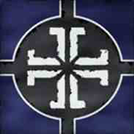Basic Mapping: Difference between revisions
No edit summary |
|||
| Line 4: | Line 4: | ||
== Step 1: Build a large room == | == Step 1: Build a large room == | ||
Build a huge room that will represent your level. If you're doing an outdoors map with vehicles, make sure to allow lots of room. | Build a huge room that will represent your level. If you're doing an outdoors map with vehicles, make sure to allow lots of room. | ||
If you want to have a sky insted of a solid roof, then use the ToolsSkyBox texture on those walls that will be the boundery to the sky | |||
== Step 2: Add Entities == | == Step 2: Add Entities == | ||
Revision as of 10:40, 13 March 2006
Home > Basic Mapping
After you've configured Hammer to run with Empires, you're ready to start making maps.
Step 1: Build a large room
Build a huge room that will represent your level. If you're doing an outdoors map with vehicles, make sure to allow lots of room. If you want to have a sky insted of a solid roof, then use the ToolsSkyBox texture on those walls that will be the boundery to the sky
Step 2: Add Entities
You're going to need one of each of these:
Step 3: Create your map's resource file
The best way to do this is to go to your empires directory and look under the resources/maps directory. Copy one of the existing map's files there and rename the copy to match the name of your map (plus the .txt extension). Edit it and make adjustments as needed.
Step 4: Set up your map's materials directory
Go to your Empires\materials\maps directory and create a folder that matches the name of your map. Then either create or copy one of the existing .vtf files to serve as a placeholder until you can get around to making one for yourself. These hold images to be overlayed on the mini-map and spawn menu.
Step 5: Flesh it out
Adding Buildings
Buildings are in the form of entities. See the Entity Index for a complete list. Buildings are the entities with building in their names.
| See Also: Entity Index |

